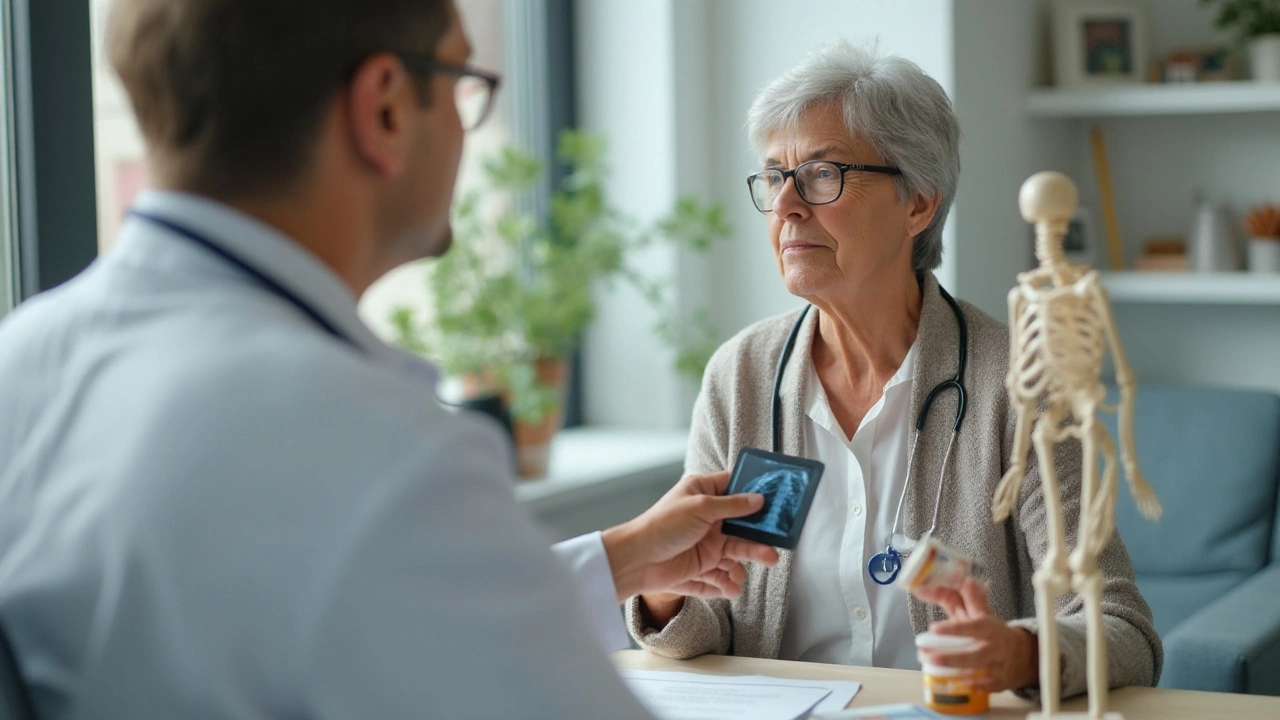Osteoporosis: Straight Talk on Causes, Symptoms, and What Actually Helps
Think your bones are tough? Osteoporosis sneaks up on people, making bones thin, brittle, and easy to break—often before you even feel a thing. That’s why doctors call it the silent disease. Most people won’t know they’re at risk until they trip, try to catch themselves, and end up with a wrist or hip fracture. It’s way more common than folks realize, especially in women over 50, but men aren’t off the hook either.
Losing bone isn’t just about getting older or bad luck. Your risk shoots up if you have certain medical conditions, use steroids a lot, or have a family history of bone problems. Even low body weight or skipping out on exercise can tip the scales in osteoporosis’s favor. Smoking and heavy drinking? They both double the trouble. Calcium and vitamin D are big players—skimp out, and your bones pay the price. Some people make things worse by ignoring early signs, like shrinking an inch or starting to stoop. Sound familiar?
Most folks only learn they’ve got osteoporosis after an accidental break. But there are ways to spot trouble early. Regular bone density scans once you hit your fifties (or sooner if you’re high risk) are the best early warning system. Every doctor worth their salt should be pushing you to get one if you’re in a risky group. And don’t wait for pain—there usually isn’t any until it’s serious.
So sure, bone-building medication ads are everywhere. But the healthiest bones start at home: weight-bearing exercise, like walking or resistance training, makes bones stronger. Diet matters too—lean on dairy, leafy greens, and fish like salmon for a calcium and vitamin D boost. Even a 30-minute daily walk is better than nothing. And if you smoke or drink heavily, it’s time to cut back. Real talk: no pill can bail you out if you keep trashing your body.
When it’s time for medicine, options exist—bisphosphonates are most common, but you’ll also hear about denosumab, hormone therapy, or parathyroid hormone treatments. Each has its quirks and side effects, so don’t just take what your neighbor’s taking. Chat with a health pro who can steer you based on your age, sex, medical background, and how severe your bone loss really is. Self-diagnosing from a TV commercial doesn’t cut it.
If you’re worried about bone health, don’t brush it off. Ask your doctor about your risk, and if they roll their eyes, find someone who listens. Catching osteoporosis early keeps you on your feet, living life your way—not sidelined by avoidable fractures. It’s not as complicated as it sounds, and small lifestyle tweaks really do add up over time.
Exploring the Connection Between Atorvastatin and Osteoporosis
This article dives into the potential link between atorvastatin, a common medication for managing cholesterol, and osteoporosis, a condition that weakens bones. It examines scientific studies, provides practical tips for maintaining bone health, and discusses whether individuals using atorvastatin should be concerned about their bone density. The goal is to provide readers with valuable information to make informed decisions about their health.
Read more
